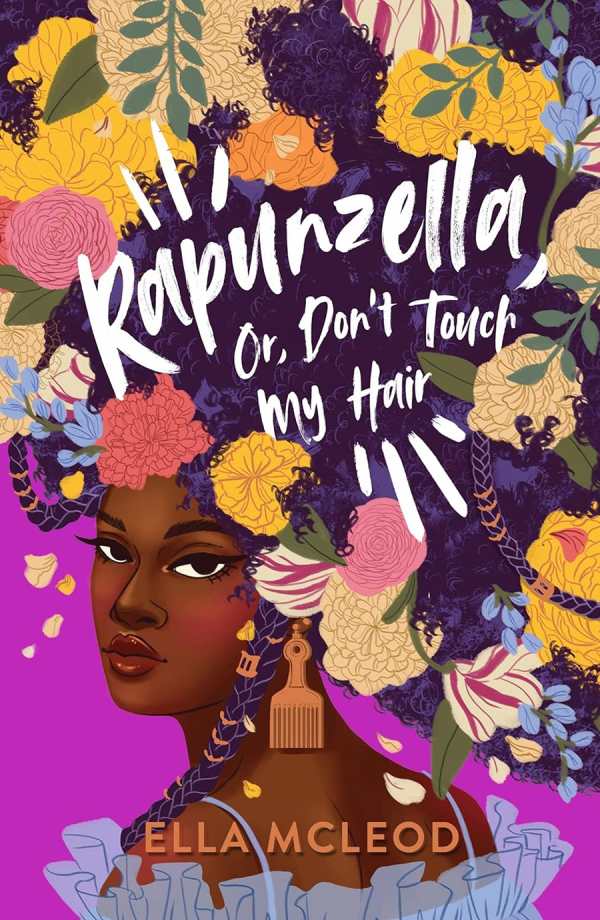Rapunzella, Or, Don't Touch My Hair
A Love Letter to Black Women
In Ella McLeod’s coming-of-age fairy tale Rapunzella, Or, Don’t Touch My Hair, a Black girl is split between adolescent anxieties and a battle against evil in her magical dreams.
In Xaymaca, as foretold by prophecy, the Black witches of Persea repossess their magic and imprison King Charming, their enslaver. But the prophecy remains incomplete: three Black girls must rise again to fight Charming after he regains power through a boy thief. Meanwhile, a Black girl meets two newcomers from Jamaica, Val and her son, when they open a hair salon. Val gifts the girl avocado hair oil, and her dreams take her to a magical garden with two witches.
Inscribing the girl’s perspective with an involved “you,” the book is empathetic to Black femininity, acknowledging the connection between Black hair and historical oppression. For the witches, their hair is magical, tied to Xaymaca’s abundant, lush nature; in cutting it off to steal their magic, Charming subjected them to centuries of slavery. The choice to straighten Black hair in the girl’s waking world is interrogated for its ties to class and racism—topics explored in depth as the girl, who’s traversing the tumult of puberty, enrolls in a wealthy private girls’ high school.
Still, the novel is optimistic, celebrating Black beauty and hair and diversity. It balances injustices against Black womanhood and agency. The descriptions of Xaymaca, Persean magic, Val’s hair salon, and the surrounding neighborhood are verdant and lively, and the interlacing of rhyming lines into the chapters reappropriates nursery tales with skill.
Recasting classic fairy tales in the context of Blackness, the marvelous novel Rapunzella, Or, Don’t Touch My Hair celebrates Black women’s solidarity and the magic that’s innate in Black girls.
Reviewed by
Isabella Zhou
Disclosure: This article is not an endorsement, but a review. The publisher of this book provided free copies of the book to have their book reviewed by a professional reviewer. No fee was paid by the publisher for this review. Foreword Reviews only recommends books that we love. Foreword Magazine, Inc. is disclosing this in accordance with the Federal Trade Commission’s 16 CFR, Part 255.

